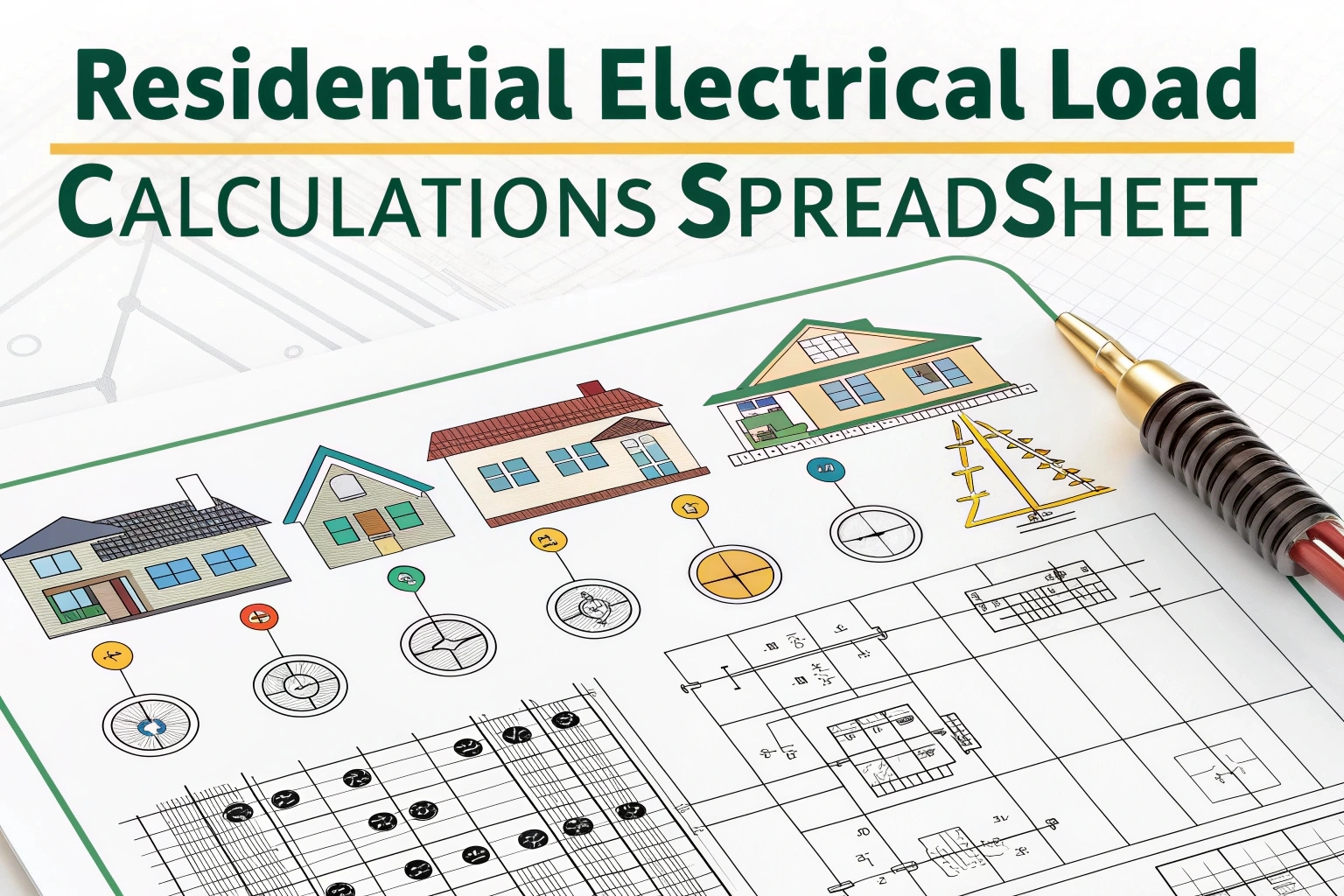Electrical load calculation is technique which is used to by engineers to design electrical system in houses. they obtains total power demand using multiple techniques one of the most common technique is using spreadsheet , calculation formulas and checking appliances. they Use their calculation to make sure wiring, breakers, and main panel is properly rated to handle the load on the sites like homes, buildings etc. this is very important step in designing all over the world and still its very confusing.
What is Electrical Load?
Electrical load is technique which is used to calculate power consumed by all electrical things like lights, fans, and other devices in a house. they measures it in kilowatts or kilovolt-amperes. proper load estimation is very important for
- Choosing the right wire sizes
- Selecting main and sub panel capacity
- Avoiding overloads and power cuts
- Ensuring electrical safety and compliance with codes
How to Calculate Electrical Load for a House (kW)?
The total load is calculated by summing the wattage of all electrical devices in the house and converting it to kilowatts (kW):
Total Load (kW) = (Sum of all watts) / 1000
Formula:
Watts = Voltage (V) × Current (A)
kW = Total Watts / 1000
You also need to apply demand factors as per National Electrical Code (NEC) or Indian Standards (IS: 732), which account for diversity in usage.
Common Appliances and Their Power Ratings
Here’s a table of commonly used household electrical devices along with their average power ratings:
| Appliance | Power Rating (W) |
|---|---|
| LED Light (9W–15W) | 10 W |
| Ceiling Fan | 70–80 W |
| Refrigerator (Medium) | 150–300 W |
| Washing Machine | 500–1000 W |
| Electric Geyser (25L) | 2000–3000 W |
| Microwave Oven | 1000–1500 W |
| TV (LED, 42”) | 100–150 W |
| Laptop | 65–100 W |
| Air Conditioner (1.5 Ton) | 1500–2000 W |
| Water Pump (1HP) | 750–1000 W |
| Induction Cooktop | 1800–2200 W |
| Toaster/Kettle | 1000–1500 W |
| Mixer Grinder | 400–800 W |
Note: Actual values may vary depending on brand and model. Always refer to the nameplate ratings for precise calculations.
Example: Load Calculation for a 2-BHK House
Let’s assume the following setup for a standard 2-bedroom flat:
| Room | Appliances | Quantity | Power/Unit (W) | Total (W) |
|---|---|---|---|---|
| Living | 1 LED TV, 4 Lights, 1 Fan | 6 | Avg 70 | 420 W |
| Bedroom 1 | 1 AC, 2 Lights, 1 Fan, 1 Laptop | 5 | Varies | 1900 W |
| Bedroom 2 | 1 AC, 2 Lights, 1 Fan | 4 | Varies | 1800 W |
| Kitchen | Fridge, Induction, Mixer, Lights | 4 | Varies | 3100 W |
| Bathroom | Geyser, Light, Exhaust Fan | 3 | Varies | 2500 W |
| Balcony | 1 Light, 1 Pump | 2 | 800 W | 800 W |
| TOTAL LOAD | 10520 W | |||
| Safety Margin (25%) | 2630 W | |||
| Final Load (W) | 13150 W | |||
| Final Load (kW) | 13.15 kW |
This value will help you size your main distribution board and choose the appropriate wire sizes and breakers.
Download: Residential Electrical Load Calculator XLS
We’ve created a free downloadable Excel spreadsheet that helps automate all the above calculations.
How to Use the Spreadsheet?
- Download and open the Excel file
- Go to the “Input” sheet
- Enter the number of each appliance per room
- Review the total wattage and final load (kW)
- Print or save the sheet as PDF for records























